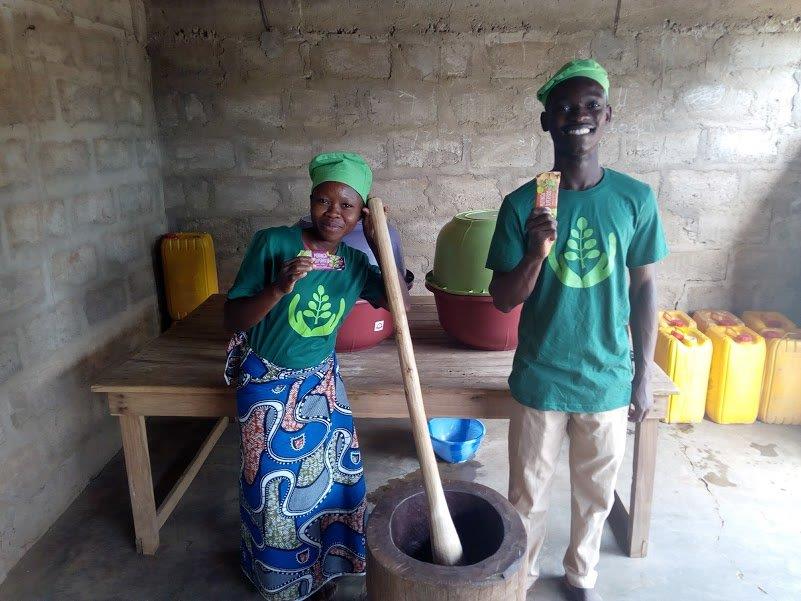
What is Organic Food?
There is a lot of hype around the word “organic”. A movement of people are willing to spend hundreds of dollars more every year on their grocery bill all for the sake of being organic. So, for those of you who haven’t heard, what does it mean to be organic? According to the EPA, organically grown food is food grown and processed using no synthetic fertilizers or pesticides. Pesticides derived from natural sources (such as biological pesticides) are an exception.
This growing concern for eating pesticide-free is not unwarranted. Organic foods not only benefit the environment and the public health of workers both on and off the field, but actually provide stronger health benefits for the consumer. Studies have shown that organic foods have higher amounts of Vitamin C, magnesium, phosphorus and iron – nutrients that are crucial to a well functioning body.
One could almost objectively say that American consumers supporting organically grown foods is an all around good thing; but what does this all mean for the farmer?
To label foods as organic, one needs an organic certification. The organic certification requirements vary from country to country but generally involve a set of production standards that go from the planting all the way to shipping.
Organic Farming in Africa
Kuli Kuli sources much its powder from West Africa, where certified organic farming is relatively underdeveloped. However, there is evidence that those who are certified represent just a fraction of a larger agro-ecological movement spreading across Africa. NGOs, farmer’s groups and development agencies are increasingly addressing their initiatives such as ensuring food security or eradicating poverty, through adoption of organic techniques.
There is a dominance of highly inefficient traditional African farming that has been passed down through generations. In the U.S. conversion to organic farming usually leads to an initial loss in yields. However, in Africa, conversion from their old ways of subsistence farming to organic generally leads to immediate economic gains. Although data is difficult go come by, there is growing evidence that the appeal for going organic is spreading. This is fortunate in the overall well-being of our planet but is not actually very relevant when it comes to our favorite, the “miracle tree”, moringa.
Moringa Farming in Benin
Here in my small West African country, Benin, it is rare for farmers to use pesticides on moringa trees. Sure, the large scale monoculture cotton farms are drowned in pesticides I would be scared to know the names of, but with moringa, there is no need. Even if a Beninese farmer was not well versed in the benefits of growing organic, it is highly likely he would not spray down his moringa trees. It would simply be a waste of money. The most common pest that attacks moringa trees here is the termite, which isn’t much a problem at all. Two weeks of spraying the commonly found and all natural neem oil, will cure any ailing tree.
Currently I am serving as a Peace Corps volunteer. Here I am helping a rising women-run moringa powder enterprise forge their way towards exporting their powder to Kuli Kuli. Due to the demand for the organic certification on the U.S. market, our perfectly pesticide-free moringa trees still need to go through the certification process. This can take years and thousands of dollars. Fortunately, Kuli Kuli has been incredibly patient and helpful, holding our hand along our little organic way.
Obstacles in the Path to Organic Certification
For many farmers who have not managed an early partnership with a company filled with skilled, experienced workers like Kuli Kuli, the organic certification process may seem impossible. For many smallholder farmers the following issues could rise to become major problems in efforts towards certification:
Access to Information
It has become increasingly common for farmers in small villages in the middle of nowhere to have smart phones. However, there is still a huge lack of understanding and appreciation for resources like Google.
Illiteracy
In Benin, only 30% of women and 52% of men are able to read and write. Even with access to information, an elementary literacy rate makes small tasks incredibly daunting. For example, searching the USDA website to check for a product’s eligibility for certification isn’t possible for many farmers.
Language barriers
Similar to literacy, in Benin, only 25% of women and 43% of men can speak the official language, French. The speakers of the 50+ local languages represented in Benin are either SOL or need to make good, fast friends with a French speaker.
Time
You try taking care of a farm, seven children, keeping a household functioning without aid of modern technology like laundry machines or stoves, all while trying to find the time to certify your farm as organic. Oh, yeah and for fun, let’s make it 106 degrees six months of the year. This cuts the time you can actually function as an alert human being in half.
Records
In many small villages, having an accurate paper trail can be tricky. Most people only keep loose records and illegitimate land sales are all too common. This makes proving your soil has been pesticide free for 5 years difficult to say the least.
Funding
And for the obvious one, the expense. In some cases, getting certified can exceed thousands of dollars, which could equate to multiple years’ salaries for some farmers.
Although all this may seem disheartening for those consumers who want to support smallholder farmers, there is still a way. Research the brands you are loyal to and find out how they are helping their suppliers get and then maintain their organic certifications. Since organic foods are becoming more popular, the certification process is slowly become more transparent and user friendly as well. Hopefully through the coming years, smallholder farmers who want to go organic will be able to do so more smoothly.










It is really a great job being done by you people. I am also inspired to begin farming moringa for both leaves powder as well as oil.
Thank you! We’re glad so glad you’ve enjoyed out posts!